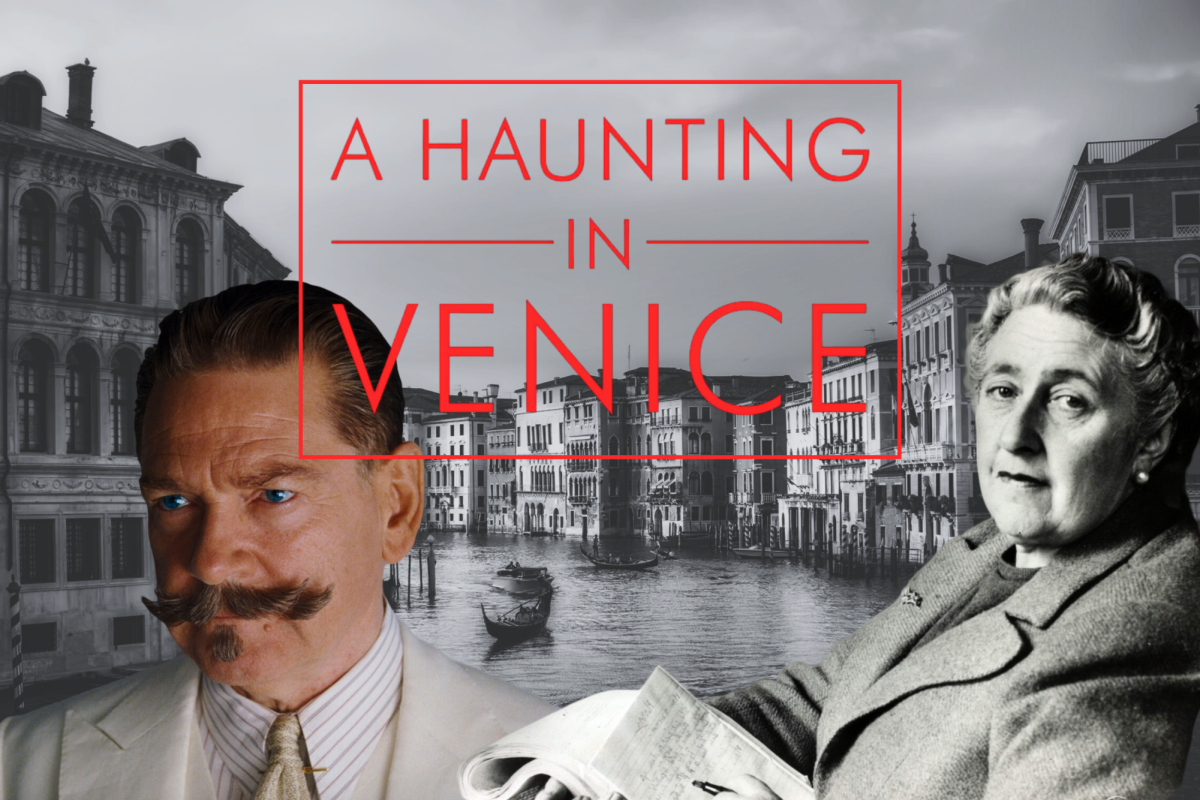“A Haunting In Venice,” the latest installment in director Kenneth Branagh’s reboot of Hercule Poirot (played by Branagh himself), sets itself apart from its predecessors –– and not just by way of venue.
Agatha Christie’s detective, now in Italy, still brandishes his handlebar mustache but is faced with a new kind of dilemma. His sound faith in rationality enters the limelight when his self-possessed author friend Ariadne Oliver (Tina Fey) invites him to disprove a seance. “I found something. I’ve looked at it from every which way,” she tells him. “I am the smartest person I’ve ever met, and I can’t figure it out. So I came to the second.”
But their initial encounter is underscored by something else too — Poirot’s lost sense of purpose. Now holed up in Venice, he is no longer accepting cases. As Oliver puts it, “Venice, a gorgeous relic sinking into the sea, just like your mind without a challenge.”
The film’s setting and score are cliché but effective, taking the viewer back to a 1947 version of the floating city when bridges did not connect every island and the police force was helpless to ward off the city’s ghosts. Icelandic composer Hildur Guðnadóttir (“Tár,” “Sicario” and “Joker”) shows her range in a score that reflects both a post-war era Italy and a haunted palazzo.
The movie’s filmmaking is on point. The tilted Dutch angles lose their luster after a while but set the tone for a psychologically unsettling mood while intimate close-ups animate the characters’ range of emotion. Candlelit backgrounds and well-placed flashbacks do well to immerse the audience and reveal more and more of the plot.
Poirot soon encounters the psychic Mrs. Reynolds, played by Michelle Yeoh (“Everything Everywhere All at Once”), to whom he plainly says, “I must tell you, Madam, I have been all my life uncharmed by your kind… Opportunists who prey on the vulnerable.”
For Poirot, Mrs. Reynolds is not his ultimate foe but rather an exemplification of the meta-problem he has spent his life trying to solve: Does life contain anything beyond abstract rationality?
The version of Poirot in “A Haunting in Venice” is no more rational than his first two appearances, but he does seem to be searching for something he couldn’t find before. This murder gives him a chance. Therefore, Branagh succeeds in revivifying Poirot’s sense of purpose and elevating the eerie atmosphere from cheap whodunit to something with value for its characters.
Like the movies before it, the film exhibits fair play, so a keen viewer may be able to spot the culprit before it is revealed. However, this mystery is substantially more complex, more akin to “And Then There Were None” than “Death on the Nile.”
The movie has been slower out of the gate than the last two, earning only $40 million in box office earnings so far on a budget of $60 million. However, fans of Branagh’s Poirot should take the time to see this unique adaptation that manages to weave something meaningful into an otherwise spooky evening.
Email: rhyshalaby2026@u.northwestern.edu
Related Stories:
— Reel Thoughts: Barbie is too much…but aren’t all women?
— Reel Thoughts: ‘Oppenheimer’ exceeds all expectations
— Reel Thoughts: ‘Indiana Jones and the Dial of Destiny’ rebounds to end series on a high note



















